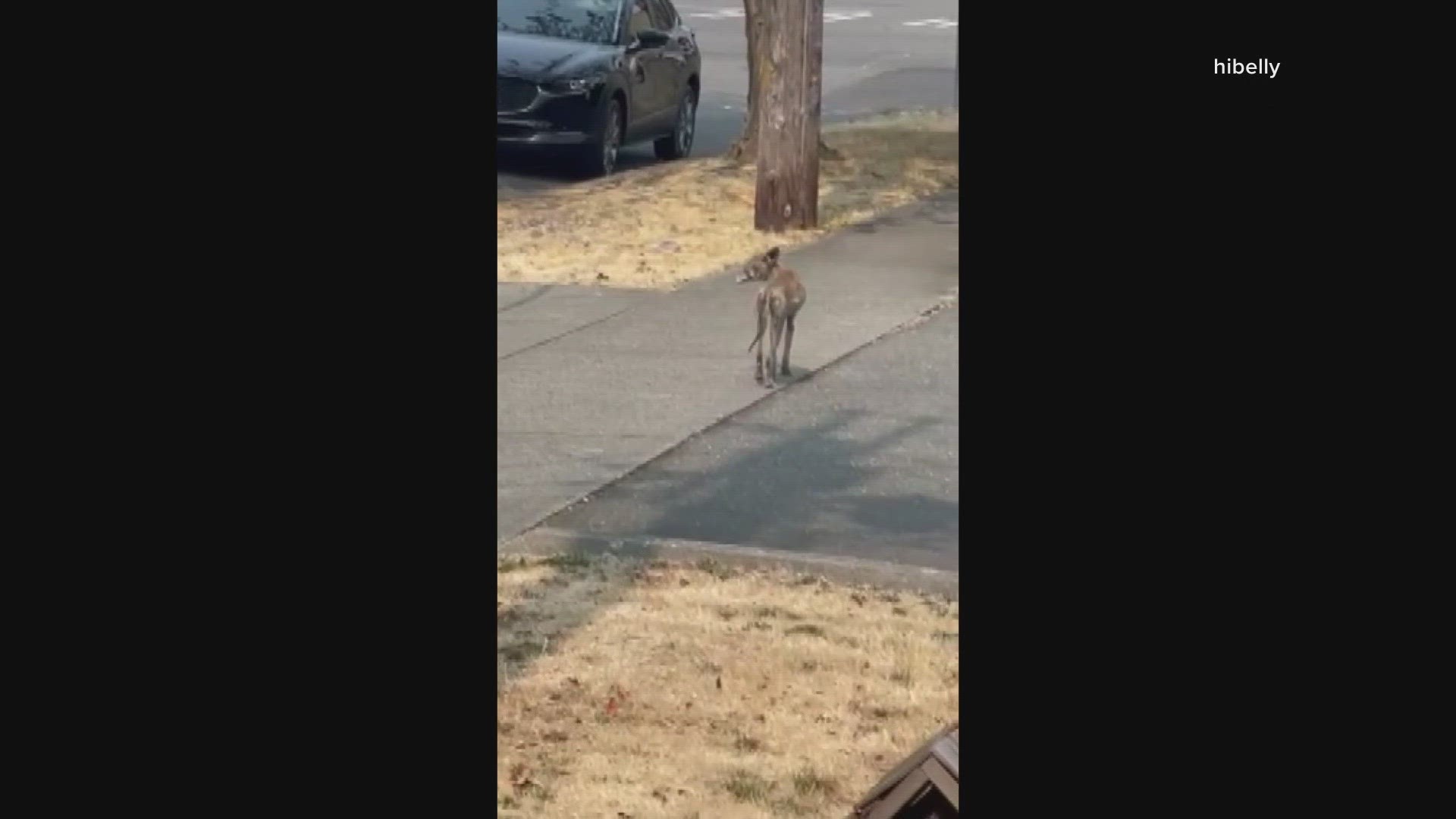TACOMA, Wash. — Editor's note: Video of a coyote missing its upper jaw linked in this story may be disturbing to some viewers.
For months, people living in and around Tacoma's Hilltop neighborhood have reported multiple sightings of a coyote. Most recently, a video shared on Reddit has created a large conversation about what can be done about a coyote roaming in neighborhoods.
"I've seen a couple postings about the coyote in the area," Emily Barron, who lives in the neighborhood, said. "I think it's unfortunate that we just keep building in areas that coyotes potentially live in. That's maybe why people are seeing it more."
Videos online show this particular coyote is missing its upper jaw.
Despite its missing maxilla, it's being accused of killing at least one cat in the neighborhood. Under state law, you are allowed to kill or trap a coyote if it is causing damage to crops or domestic animals. However, Barron believes pet owners need to be more responsible because domestic animals like cats and dogs aren't native species.
"I wouldn't let my dog roam the streets, so they probably shouldn't let the cat roam the streets. At that point, I believe it's almost fair for the coyote to take it out in the way. It's maybe seen as a predator or has a den it's protecting," she said.
Washington Department of Fish & Wildlife says (WDFW) prevention is the best way to minimize conflict with coyotes. You're encouraged to report a coyote only if it's causing immediate public safety issues like attacking humans.
WDFW offer the following ways to minimize conflict with coyotes. They can also be found at this link.
- Don’t leave small children unattended where coyotes are frequently seen or heard.
- Never feed coyotes.
- Don’t give coyotes access to garbage.
- Prevent access to fruit and compost.
- Feed dogs and cats indoors.
- Don’t feed feral cats (domestic cats gone wild).
- Keep dogs and cats indoors, especially from dusk to dawn.
- Modify the landscape around children’s play areas.
According to the Humane Society, encounters between coyotes and humans are rare, and attacks are even rarer. For more information, click here.

